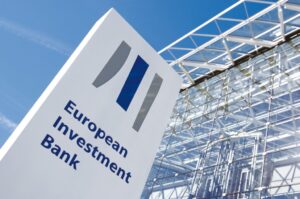
The European Investment Bank (EIB) has allocated EUR46.2 million to support Ukrainian municipalities in restoring vital public infrastructure and providing essential services, backed by an EU guarantee under the European Commission’s investment program for Ukraine.
“This funding is directed where it is most needed: to restore and support essential public services for Ukrainian citizens. This support comes at a critical moment, as Russia intensifies its attacks on civilian infrastructure. The European Commission intends to continue its close cooperation with the European Investment Bank, using the Ukraine Assistance Program to provide vital support to Ukraine and its people,” said Valdis Dombrovskis, European Commissioner for Economy and Productivity, Implementation, and Simplification.
In particular, EUR 28 million has been allocated under Ukraine’s Urban Public Transport Projects I and II, which support the renewal of urban transport fleets with modern, energy-efficient vehicles. Thanks to this funding, Kyiv, Lviv, and Mykolaiv will receive new buses; Zaporizhzhia, Ternopil, and Kremenchuk will receive trolleybuses; Dnipro and Kamyanske will receive trams; and Uzhhorod will receive electric buses.
As part of Ukraine’s municipal infrastructure development program, the EIB has allocated EUR 13.3 million to modernize vital local services. The funding supports the reconstruction of public lighting systems in Dnipro and Kamyanske, the modernization of water supply and sewage systems in Lutsk, the improvement of energy efficiency in schools and kindergartens in Sumy, and the improvement of solid waste management in Lviv for the reclamation of the Hrybovychi landfill.
An additional EUR 4.9 million has been allocated under the Ukraine Public Buildings Energy Efficiency Program to support projects in the cities of Rivne, Korets, and Kovel. The sub-projects focus on the energy-efficient modernization of schools, kindergartens, and medical facilities, including insulation, window replacement, and heating system upgrades. This funding is complemented by an E5P investment grant for hospital buildings, such as the Kovel City District Territorial Medical Association, which helps improve energy efficiency, comfort, and quality of service in healthcare facilities.
The European Investment Bank has been operating in Ukraine since 2007. Following Russia’s full-scale invasion in 2022, the Bank stepped up its financial support to help strengthen the country’s resilience and rebuild its infrastructure. Since then, the EIB has provided EUR4 billion in financing to Ukraine.
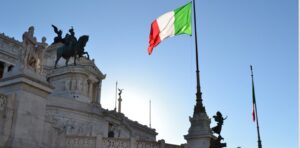
Italy intends to sign an intergovernmental agreement with Ukraine for EUR 50 million to purchase Italian goods and services for recovery and allocate EUR 100 million to the ERA (Economic Resilience Action) of the International Finance Corporation (IFC) of the World Bank Group to support the private sector, Italian Finance Minister Giancarlo Giorgetti said.
“I would like to emphasize that all these initiatives will be financed from new grant resources, with the clear intention of not placing an additional burden on Ukraine’s state budget,” he said at the URC2025 Ukraine Recovery Conference in Rome, according to a correspondent from the Interfax-Ukraine news agency.
The minister also announced an additional contribution of EUR 10 million for the implementation of an EBRD project in the agro-industrial sector, which aims to modernize Ukraine’s agro-industrial sector while promoting its integration into global value chains.
In addition, Giorgetti stressed the importance of technical cooperation as a basis for effective and sustainable reconstruction and announced his intention to allocate EUR 1.5 million to the European Bank for Reconstruction and Development (EBRD) initiative FIRST (Ukraine Facility for Infrastructure Reconstruction) to assist in the preparation of public investment projects for the reconstruction of infrastructure facilities in Ukraine.
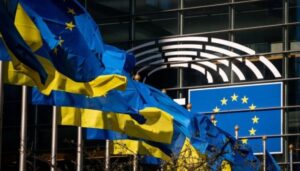
At the first “EU-Ukraine Investment Conference” in Warsaw on Wednesday, the European Union called for mobilizing private investment in areas critical to Ukraine’s recovery, the European Commission (EC) said.
“Under this call, EU businesses, including joint ventures or consortia involving both European and Ukrainian companies, are invited to submit proposals by March 1, 2025. Proposals will be reviewed and linked to the most suitable investment projects financed by the Investment Framework for Ukraine, which is an integral part of the EU’s EUR 50 billion Ukraine Fund,” the EC communiqué says.
“Ukraine’s recovery requires both public funding and partnerships with the private sector. By combining these efforts, we can maximize investment, support the country’s recovery and its gradual integration into the EU single market. Indeed, facilitating private sector participation in Ukraine’s recovery and reconstruction will be key to its success,” said Oliver Vargey, European Commissioner for Neighborhood and Enlargement Policy.
The European Commission named the priority areas of the EU’s call: development of sustainable energy solutions, including renewable energy projects and modernization of existing energy infrastructure; investment in processing of critical raw materials – key minerals and resources needed for high-tech industries and renewable energy technologies; revitalization and modernization of the manufacturing and production sector to increase industrial competitiveness; support for construction and reconstruction of Ukraine; and support for the development of the energy sector.
The two-day conference, according to the EC, brought together more than 5,000 participants, including companies, banks and investors from Ukraine, the EU and other countries, to mobilize private investment in the recovery, reconstruction and modernization of Ukraine.
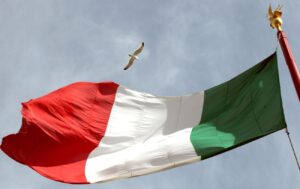
Italian Foreign Minister Antonio Tajani said that his country is ready to host and organize the 2025 Ukraine Recovery Conference, the Italian Foreign Ministry website reports.
“The Italian government is firmly committed to supporting the recovery and reconstruction of Ukraine, as evidenced by the wide and authoritative presence of our business community in Berlin. We have also put this issue at the center of our G7 presidency: we expect concrete results from the Conference and are ready to take over the organization of its holding in Italy in 2025,” Tayati said at the annual Ukraine Recovery Conference, which this time took place in Berlin.
The politician also added that Italy’s bilateral assistance amounts to more than two billion euros. This is the amount excluding military aid and the contribution to the pan-European aid.
“The 2025 Recovery Conference will be attended by heads of state and government from 77 countries: a total of about 1,800 participants are expected. 500 companies will be invited, including 150 from Germany, 150 from Ukraine and 200 from other participating countries,” the Foreign Ministry added.

Despite problems with finding workers, rising prices of raw materials and physical threats, Ukrainian businesses are optimistic about the future, 44% of surveyed enterprises are ready to invest in their development or recovery, these are the results of the February New Monthly Enterprises Survey (#NRES) of the Institute for Economic and Policy Research (IEP).
“Businesses are quite optimistic about investment given that a full-scale war is ongoing. For example, 42% of businesses believe that now is more or less a favorable time to invest in equipment. For comparison, at the beginning of 2015, when the ATO was in an active phase, the share of such enterprises amounted to only 14%”, – commented the results of the study, Eugene Angel, a senior researcher at the IEI.
The IEI also pointed out that business is gradually coming out of the state of complete uncertainty and begins to make plans for the future: in February 2024, only about 15% of business owners and managers could not give an answer about their business plans for the next six months, while a year ago there were about 40% of them.
At the same time, the level of uncertainty in the perspective of two years is still quite high – about 50% of respondents.
“A significant decrease in the number of those who find it difficult to make plans for the next six months indicates that optimism is returning to Ukrainian businesses. Moreover, the share of enterprises operating at 100% capacity is gradually increasing: in February 2023 there were 6% of such enterprises, now there are already 15%. But, of course, it is difficult for businessmen to make plans for the long term (2 years) in the conditions of war”, – said Oksana Kuzyakiv, Executive Director of IEI.
According to the published data, for the second month in a row the Business Activity Recovery Index (BAI) decreased – by almost 10 p.p. – From 0.43 to 0.34. As for its components, the share of enterprises that reported that their business activity was better than in the previous year decreased from 56.0% in January to 44.8% in February, nothing changed for 44.0% (30.9% in January), the share of those for whom the situation was worse than a year ago remained without significant changes for several months in a row (13.1% in January and 11.2% in February).
According to the survey, the main obstacles to investment are economic uncertainty, political instability and insufficient corporate profits.
As for the obstacles to doing business, February 2024 saw some changes in the list of obstacles: the assessment of rising prices for raw materials and commodities rose from 46% to 49%, and labor shortages rose from 41% to 46%, which respectively moved them to the 1st and 2nd places.
At the same time, the obstacle “not safe to work” dropped from 1st to 3rd place, although its value decreased slightly from 46% to 45%.
Estimates of power outages dropped from 26% to 24%, which is only the 7th most important obstacle, while corruption and pressure from law enforcement agencies ranked even lower in the survey.
In February, compared to January, the share of enterprises operating at full capacity slightly increased – from 13% to 15%, while the share of non-operating enterprises remains unchanged for half a year and amounts to 2% of respondents.
The survey emphasizes that the share of positive assessments of the government’s policy to support business is 8% and has remained unchanged for more than half a year, while 55% (58% in January) assess it neutrally, and 18% negatively (16% a month earlier).
IEI specialists also recorded a slight decrease in problems with finding labor: qualified workers are difficult to find for 31% of surveyed entrepreneurs (32.4% in January), and unskilled workers – for 26.5% of respondents (27.4% a month earlier).
The monthly IEI survey in February involved 542 Ukrainian enterprises located in 21 out of 27 regions of Ukraine. The field stage of the 22nd wave of the survey lasted from February 19 to February 29, 2024.
DEVELOPMENT, INVESTMENT, New Monthly Enterprises Survey, NRES, RECOVERY, UKRAINIAN BUSINESS
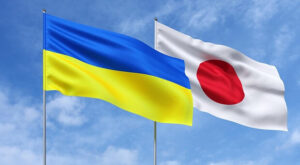
Ukraine’s state budget has received about $950 million from Japan as part of World Bank projects for recovery and social protection, the Finance Ministry said on Thursday.
“The financing consists of a $52.4 million grant from Japan under the Housing Opportunities for People’s Empowerment (HOPE) project and a $900 million loan from the Japanese government through the Investing in Social Protection for Improved Reach, Resilience, and Efficiency (INSPIRE) project,” the release said.
According to the release, the funds will be used to reimburse the state budget of Ukraine for urgent and priority needs, in particular in the field of recovery and social assistance.
The INSPIRE project is funded by a $1.2 billion loan from the World Bank’s Trust Fund for the Provision of Necessary Credit Support to Ukraine (ADVANCE Ukraine), with support from the Government of Japan, and aims to provide social protection to vulnerable populations during and after the war, improve access to social assistance and social services, and strengthen the adaptability of the social support system to effectively respond to current and future challenges.
The HOPE project aims to restore infrastructure in the combat-affected areas, de-occupied and affected regions of Ukraine. Funds will also be provided to homeowners for repairs in multi-family and private homes that have sustained moderate damage and do not require major repairs. The project will support policy reforms at the national level to improve recovery outcomes and alignment with Ukraine’s European integration goals.
On December 19, Finance Minister Sergiy Marchenko said that since the beginning of this year, Ukraine has managed to attract more than $39 billion in external financing, compared to $32.1 billion for the entire last year, and by the end of the year this amount will reach about $42.3 billion.
In particular, on December 20, Ukraine received a grant of EUR 150 million from the EU, and on Thursday – EUR 1.5 billion of the last tranche of the EU’s macro-financial assistance this year.